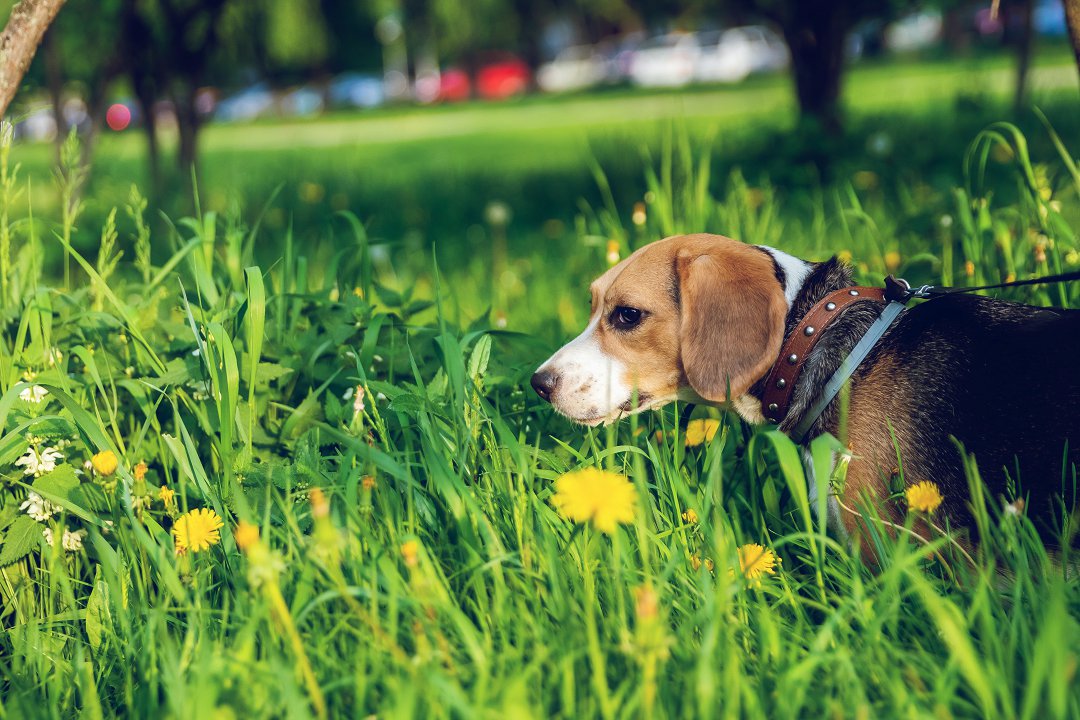Table of Contents
Introduction: Understanding the Beagle Puppy: A Comprehensive Guide
If you’re eagerly awaiting the arrival of a Beagle puppy, you may be wondering, “What can I expect with a Beagle puppy?” Well, you’re in the right place! In this comprehensive guide, we’ll delve into everything you need to know about raising a Beagle puppy, from their training and care to their behavior and health. Whether you’re a first-time owner or have had Beagles before, this guide will provide valuable insights and tips to ensure a smooth and enjoyable experience with your new furry friend. So, let’s dive in and uncover the wonderful world of Beagle puppies!
When it comes to Beagle puppies, there’s a lot to learn. From the moment they enter your home, you’ll need to provide proper training, care, and socialization to help them grow into well-rounded adult dogs. In the upcoming sections, we’ll explore various aspects of Beagle puppy ownership, including training techniques, grooming needs, and health considerations. We’ll also discuss important topics such as teething, vaccinations, and potty training. By the end of this guide, you’ll have a thorough understanding of what to expect with a Beagle puppy and be fully prepared to embark on this exciting journey. So, let’s move on to the next section and discover what awaits you in the early months of nurturing a Beagle puppy.
Nurturing a Beagle Puppy: What to Expect in the Early Months
Congratulations on bringing home your new Beagle puppy! The early months of owning a Beagle puppy can be both exciting and challenging. As a new owner, it’s important to understand what to expect during this crucial stage of your puppy’s life. Here’s a comprehensive guide to help you navigate through the early months of nurturing your Beagle puppy.
1. Beagle Puppy Care
Taking care of your Beagle puppy’s basic needs is essential for their overall well-being. Here are some important aspects of Beagle puppy care:
- Feeding: Beagle puppies have specific dietary needs. Feed them high-quality puppy food that is appropriate for their age and size. Beagles are prone to obesity, so it’s important to monitor their food intake and avoid overfeeding.
- Healthcare: Regular veterinary check-ups, vaccinations, and preventive treatments for fleas, ticks, and worms are crucial for your Beagle puppy’s health.
- Grooming: Beagle puppies have a short, dense coat that requires regular brushing to keep it clean and healthy. Additionally, regular nail trims, ear cleaning, and dental care are important for their overall hygiene.
2. Beagle Puppy Training and Socialization
Training and socializing your Beagle puppy from an early age is essential for their development and behavior. Here are some key points to consider:
- House Training: Beagle puppies can be a bit stubborn when it comes to potty training. Consistency, positive reinforcement, and a regular schedule will help them learn quickly.
- Basic Commands: Teach your Beagle puppy basic commands like sit, stay, and come. Positive reinforcement training methods work best with this breed.
- Socialization: Expose your Beagle puppy to different people, animals, and environments to help them develop into a well-rounded and confident adult dog.
3. Beagle Puppy Behavior and Exercise
Understanding your Beagle puppy’s behavior is crucial for a harmonious relationship. Here’s what you can expect:
- Energy Levels: Beagle puppies are known for their high energy levels. They require regular exercise to keep them mentally and physically stimulated. Daily walks, playtime, and interactive toys are great ways to keep them active.
- Teething: Beagle puppies go through a teething phase, which can be challenging. Provide them with appropriate chew toys to alleviate discomfort and prevent them from chewing on household items.
- Temperament: Beagles are friendly, curious, and sociable dogs. They thrive on companionship and may exhibit separation anxiety if left alone for long periods of time.
By understanding what to expect with a Beagle puppy and providing them with the care, training, and socialization they need, you’ll be setting them up for a happy and well-adjusted life. In the next section, we’ll delve deeper into the Beagle puppy experience, providing you with valuable insights and tips for new owners.
Unveiling the Beagle Puppy Experience: Insights and Tips for New Owners
When bringing a Beagle puppy into your home, it’s important to have a good understanding of what to expect. This will help you navigate the early months with your new furry friend and ensure a smooth transition for both of you. Here are some insights and tips to help you along the way.
1. Beagle Puppy Training
Training is an essential part of raising a Beagle puppy. These intelligent and energetic dogs thrive when given the opportunity to learn and be mentally stimulated. Start with basic obedience commands such as sit, stay, and come. Be consistent, patient, and use positive reinforcement techniques like treats and praise. Consider enrolling your Beagle puppy in a puppy training class to socialize them and teach them good manners.
2. Beagle Puppy Care
Proper care is crucial for your Beagle puppy’s overall health and well-being. This includes regular grooming, such as brushing their coat to prevent matting and checking their ears for any signs of infection. Beagles are prone to obesity, so monitor their food intake and provide them with regular exercise to keep them fit and healthy.
3. Beagle Puppy Behavior
Beagle puppies are known for their friendly and outgoing nature. They are generally good with children and other pets, but early socialization is key to ensure they grow up to be well-adjusted adults. Expose them to different environments, people, and animals from a young age to prevent any behavioral issues later on.
4. Beagle Puppy Health
Like any other breed, Beagle puppies require regular veterinary care. Schedule vaccinations to protect them from common diseases and make sure they receive regular check-ups to monitor their overall health. Be aware of common health issues that Beagles are prone to, such as hip dysplasia and obesity, and take steps to prevent or manage them.
5. Beagle Puppy Teething
Just like human babies, Beagle puppies go through a teething phase. During this time, they may have a strong urge to chew on things to relieve discomfort. Provide them with appropriate chew toys to redirect their chewing behavior and protect your belongings from being destroyed.
6. Beagle Puppy Sleep
Beagle puppies need plenty of sleep to support their growth and development. Create a comfortable and quiet sleeping area for them and establish a consistent bedtime routine. Avoid disturbing them while they are sleeping, as this can lead to crankiness and behavioral issues.
7. Beagle Puppy Potty Training
Potty training can be a challenging aspect of owning a Beagle puppy. Establish a regular schedule for bathroom breaks and reward them when they eliminate in the appropriate spot. Be patient and consistent, and avoid punishing them for accidents. With time and consistency, they will learn to associate the designated potty area with the act of elimination.
By understanding what to expect with a Beagle puppy and implementing the appropriate care, training, and socialization, you can ensure a happy and healthy life for your new furry companion. Remember to consult with your veterinarian for personalized advice and guidance throughout your Beagle puppy’s journey.
FAQs About: What to Expect with a Beagle Puppy
What should I expect in terms of beagle puppy behavior?
Beagle puppies are known for their curious and energetic nature. They may exhibit behaviors such as digging, howling, and chasing scents. It’s important to provide them with plenty of mental and physical stimulation to keep them happy and prevent boredom.
How should I care for my beagle puppy’s health?
Regular veterinary check-ups, vaccinations, and proper nutrition are essential for maintaining your beagle puppy’s health. Make sure to follow a vaccination schedule recommended by your vet and provide a balanced diet specifically formulated for puppies.
When should I start training my beagle puppy?
It’s best to start training your beagle puppy as early as possible. Begin with basic commands like sit, stay, and come. Positive reinforcement techniques, such as treats and praise, work well with beagles. Consistency and patience are key when training these intelligent and sometimes stubborn dogs.
How much exercise does a beagle puppy need?
Beagle puppies have high energy levels and require regular exercise to keep them physically and mentally stimulated. Aim for at least 30 minutes to an hour of exercise each day, which can include walks, playtime, and interactive toys. Beagles also enjoy participating in activities like scent work or agility training.
Socialization is crucial for a beagle puppy’s development. Introduce them to various people, animals, and environments from a young age. Enroll them in puppy socialization classes and arrange playdates with other friendly dogs. This will help them become well-adjusted and confident adults.
How do I handle my beagle puppy’s teething phase?
Beagle puppies, like all puppies, go through a teething phase where they may chew on objects to relieve discomfort. Provide appropriate chew toys and redirect their attention when they start chewing on inappropriate items. Regularly check their mouth for any signs of dental issues and consult your vet if needed.






Leave a Reply